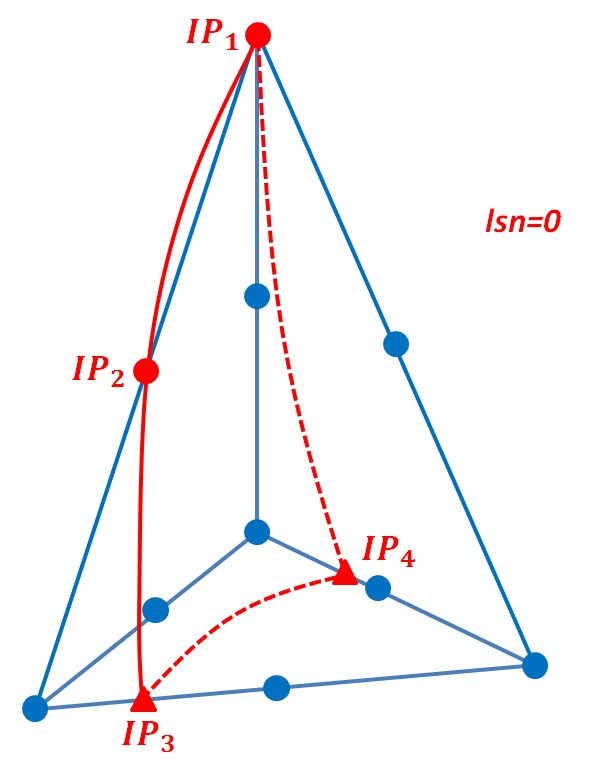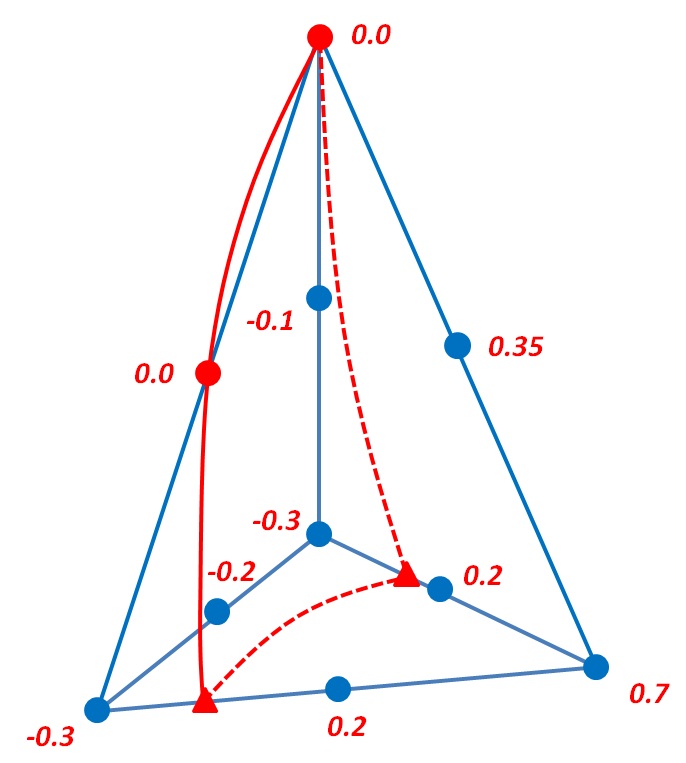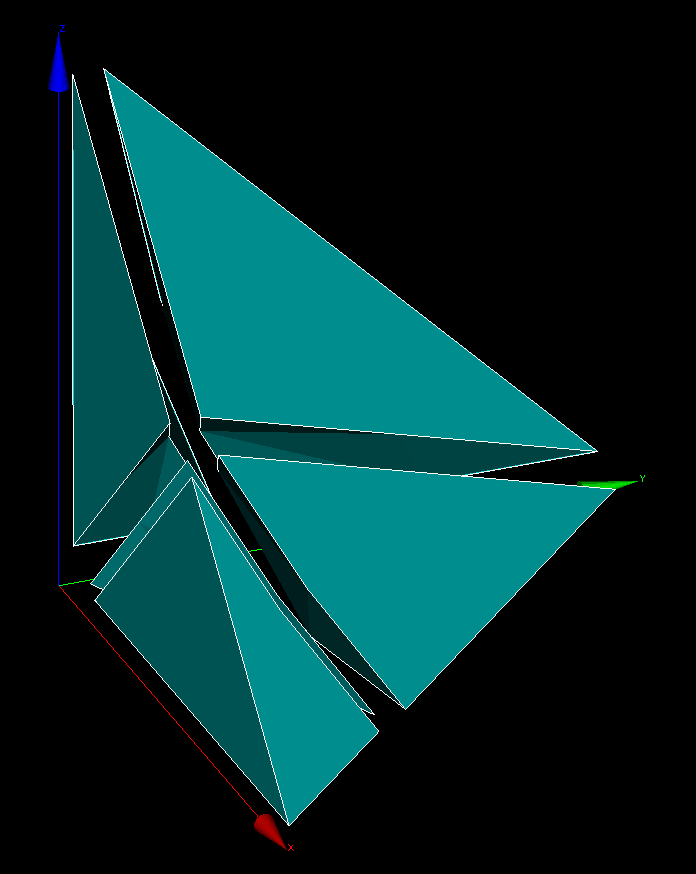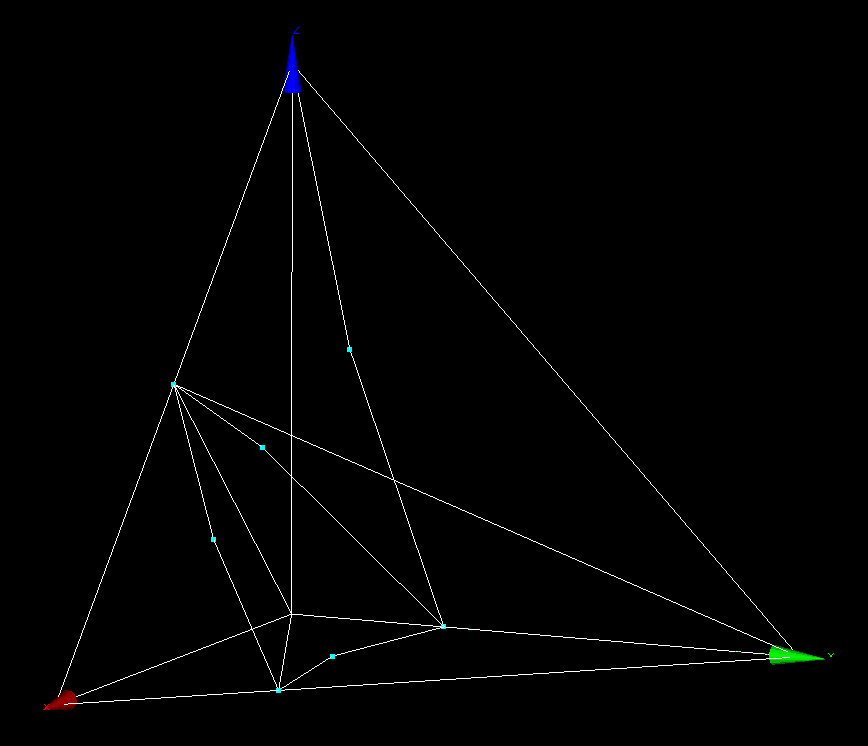8. G modeling#
8.1. Characteristics of G modeling#
The seventh cut that we are testing does not correspond to a degenerate case, it is a case of cut in its own right which however has the particularity of presenting an edge where the lsn is cancelled exactly twice, at one of its ends and at its midpoint. An example of this configuration is shown in Figure.

Figure 8.1-a : representation of the G modeling cuta
The tetrahedron cut above is described in [R7.02.12]. On either side of the lsn =0 surface there is a pyramid and a pentahedron. This tetrahedron will then give birth to 5 child sub-tetrahedra.
8.2. Characteristics of the mesh#
To « find yourself » in this cutting configuration, lsn is defined node by node. Indeed, it is difficult for the*lsn* to show a function that brings us back to the configuration of Figure. The*lsn* value for each node is summarized in Figure.

Figure 8.2-a : value of the lsn in each node for G modeling
The edges of TETRA are then intersected by the level set at the following 4 points:
Intersection point |
Coordinates |
IP1 |
(0,0.1) |
IP2 |
(0.5,0,0.5) |
IP3 |
(0.7,0.3,0) |
IP4 |
(0,0.3,0) |
8.3. Tested sizes and results#
After executing command MODI_MODELE_XFEM, we check that the 4 intersection points IP1, IP2, IP3 and IP4 are in group NFISSU and that their position is correct.
Quantities tested |
Reference type |
Reference value |
Tolerance |
COORX IP1 |
“ANALYTIQUE” |
0.0 |
10E-06 |
COORY IP1 |
“ANALYTIQUE” |
0.0 |
10E-06 |
COORZ IP1 |
“ANALYTIQUE” |
1.0 |
10E-06 |
COORX IP2 |
“ANALYTIQUE” |
0.5 |
10E-06 |
COORY IP2 |
“ANALYTIQUE” |
0.0 |
10E-06 |
COORZ IP2 |
“ANALYTIQUE” |
0.5 |
10E-06 |
COORX IP3 |
“ANALYTIQUE” |
0.7 |
10E-06 |
COORY IP3 |
“ANALYTIQUE” |
0.3 |
10E-06 |
COORZ IP3 |
“ANALYTIQUE” |
0.0 |
10E-06 |
COORX IP4 |
“ANALYTIQUE” |
0.0 |
10E-06 |
COORY IP4 |
“ANALYTIQUE” |
0.3 |
10E-06 |
COORZ IP4 |
“ANALYTIQUE” |
0.0 |
10E-06 |
The cut mesh (Figure) was also post-processed using SALOME. The cut obtained is in accordance with expectations, with 5 subtetrahedra that are consistent with the discontinuity.


Figure 8.3-a : G modeling cutting configuration